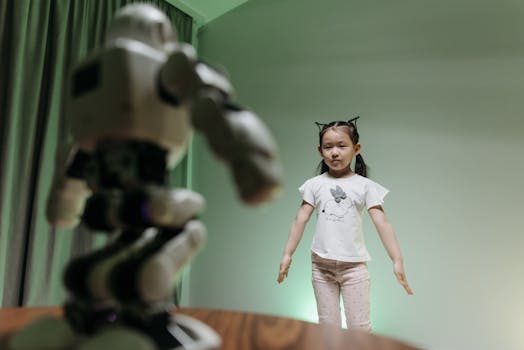
The Future of Education: What 2025 Holds
Introduction to the Future of Education

The future of education is rapidly changing with advancements in technology, shifting learner needs, and evolving societal requirements. As we approach 2025, it is essential to understand the trends and innovations that will shape the education sector. The focus keyword Future of Education is crucial in this context, as it encompasses the integration of technology, personalized learning, and accessibility.
Education in 2025 will be characterized by the widespread adoption of digital technologies, including artificial intelligence, blockchain, and the Internet of Things (IoT). These technologies will enable personalized learning experiences, enhance student engagement, and improve educational outcomes. Moreover, the rise of online and distance learning will continue to increase, providing greater accessibility to education for people around the world.
Key Trends in the Future of Education

Several key trends will shape the future of education in 2025. These include:
- Personalized Learning: With the help of AI and machine learning, education will become more tailored to individual students’ needs, abilities, and learning styles.
- Online and Distance Learning: The proliferation of online courses and degree programs will continue, making education more accessible and flexible.
- Virtual and Augmented Reality: The integration of VR and AR technologies will enhance the learning experience, providing immersive and interactive educational environments.
- Artificial Intelligence and Automation: AI will play a significant role in education, from adaptive learning systems to automated grading and feedback.
- BlockChain and Security: The use of blockchain technology will ensure the security and integrity of educational records, certifications, and assessments.
These trends will not only transform the way we learn but also the way we teach. Educators will need to adapt to new technologies, pedagogies, and student expectations, ensuring that they are equipped to provide high-quality education in the digital age.
Challenges and Opportunities in the Future of Education

While the future of education holds much promise, there are also challenges that need to be addressed. These include:
- Digital Divide: The unequal access to technology and internet connectivity can exacerbate existing educational disparities.
- Teacher Training and Support: Educators will require training and support to effectively integrate new technologies and pedagogies into their teaching practices.
- Student Data Privacy: The increased use of technology in education raises concerns about student data privacy and security.
- Accessibility and Inclusion: The future of education must prioritize accessibility and inclusion, ensuring that all students have equal opportunities to learn and succeed.
Despite these challenges, the future of education offers numerous opportunities for innovation, growth, and improvement. By leveraging technology, fostering collaboration, and promoting accessibility, we can create a more equitable, effective, and engaging education system for all.
Conclusion: Embracing the Future of Education

In conclusion, the future of education in 2025 will be shaped by technological advancements, shifting learner needs, and evolving societal requirements. As we move forward, it is essential to prioritize personalized learning, accessibility, and inclusion, while addressing the challenges associated with the digital divide, teacher training, and student data privacy.
By embracing the future of education and working together, we can create a brighter, more equitable future for all learners. The Future of Education is not just about technology; it is about creating a system that values diversity, promotes creativity, and fosters lifelong learning.






